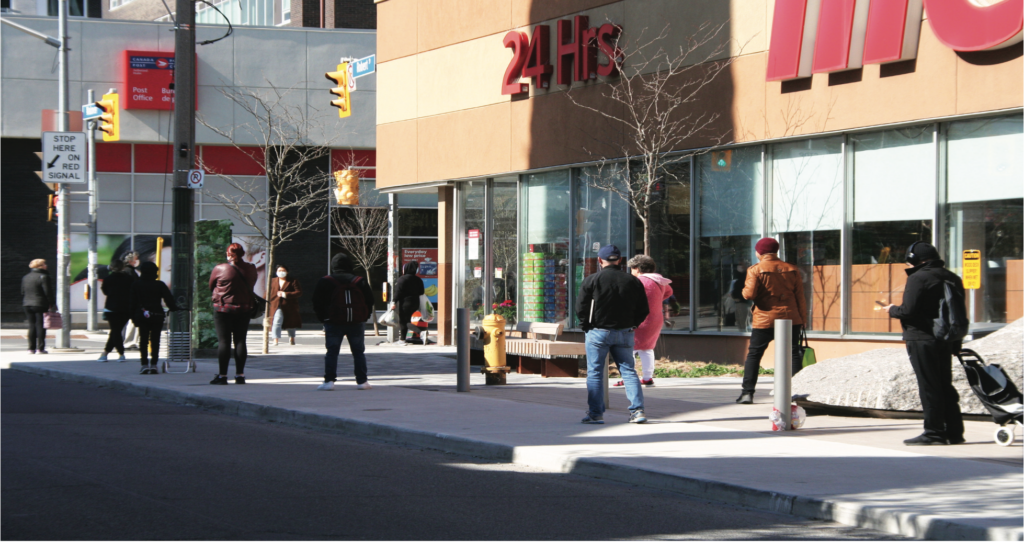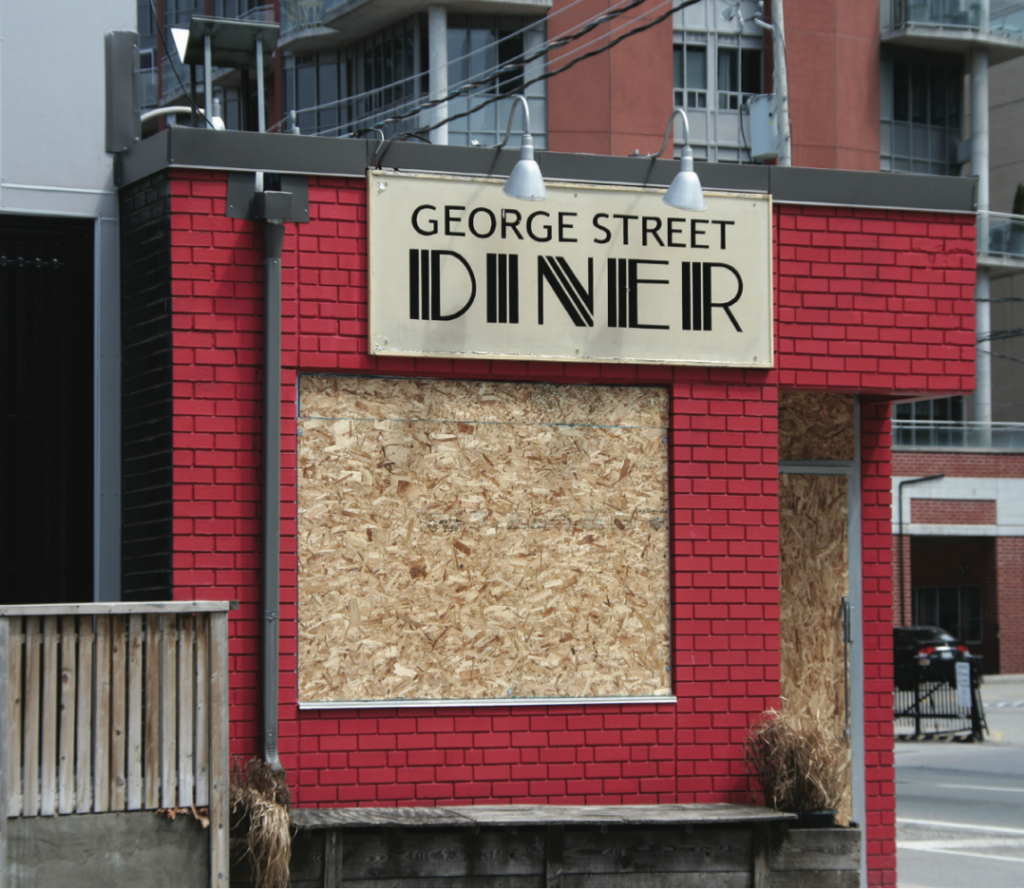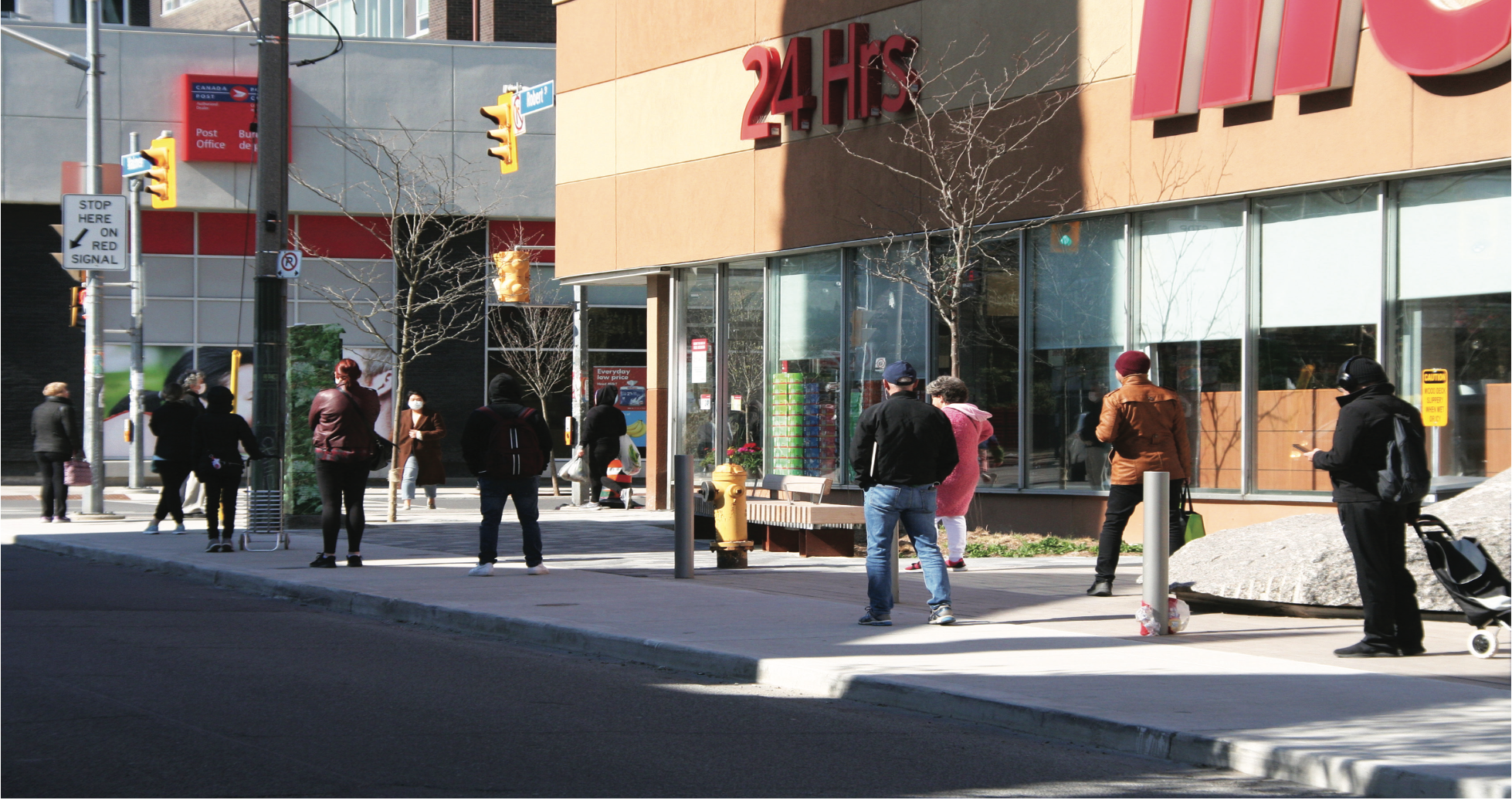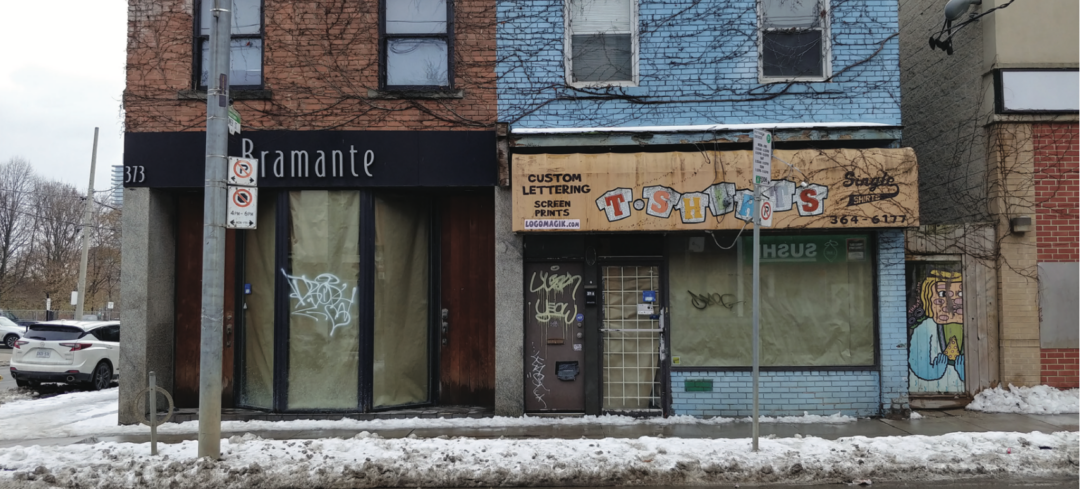By Andre Bermon
In a winner-take-all contest, the business fight to survive against the novel coronavirus heavyweight has seen many Ma and Pa shops swinging from the ropes.
Since the March shutdown imposed by the province, economic activity has slowed to a crawl. Many businesses have closed their doors or are struggling to cope with restrictive quarantine measures.
To offset revenue losses, the federal government swiftly allocated funds in the form of no-interest loans, wage subsidies and, most recently, an agreement with the provinces that could lower commercial rents by 75 percent.

Photo: Tania Correa
But even with all these tools at their disposal, small businesses are having a tough time accessing much-needed credit. And without polices tailored to their specific needs, some may have to throw in the towel.
“I don’t know how [long] we can survive and how much we can handle,” laments Vincent Ashkan, co-owner of Chamsine, a halal restaurant on the corner of Queen and Sherbourne streets.
Because Ashkan’s family business is new in the neighbourhood, his payroll and 2019 tax records don’t qualify it for the $40,000 Canadian Emergency Business Account loan.
Others are also barred simply by the way their business operates.
Carey Pearson and two partners run the Flux & Form jewellery store as self-employed sole proprietors, a common status among smaller retailers. Because they too lack a payroll, a government business loan is beyond their reach.

Photo: Tania Correa
“Our business dropped by 80-90 per cent since we are part of the wedding industry, and because most of our suppliers are closed,” wrote Pearson in an email to the bridge. “We are still able to pay our rent … for now, but with no new business it will be the months ahead when we will really need support.”
Finding rent money has been a primary concern for businesses that pay a premium to have their shops downtown.
Under the new Canada Emergency Commercial Rent Assistance (CECRA) benefit, landlords can receive 50 percent of the rent for April, May and June in forgivable loans to cover a rental drop of at least 75 percent. Tenant businesses would pay the remaining 25 percent.
Seen as a viable lifeline, CECRA comes with one major caveat: the landlord must agree.
“The relationship I have with my landlord is all business. There is nothing personal there,” said Ash Farrelly, owner of the local favourite George Street Diner. “I am hoping that he will honour what the government says … I don’t know if he is willing to lose that 25 percent.”
The program is expected to be operational by mid-May.
Even with such benefits, concern is growing about how businesses will operate when the economy opens, in view of social distancing rules.
“How many people will be allowed into the restaurant?” said Farrelly. “Are we going to allow 25 people in and stagger them? … Can [we] survive on 20 people every hour?”
Many more questions remain in the long fight ahead.




